Lamphun is a city located in the northern part of Thailand, and it is one of the oldest cities in the country that dates all the way back to the 8th Century. The city was established as the capital city of an ancient Mon kingdom of Haripunchai, even before the first Siam kingdom, Sukhothai, was established in the 12th Century.
Due to its significant historical value, Lamphun is a great place to make a day trip from Chiang Mai to see all the beautiful ancient Haripunchai temples and learn more about Hariphunchai, the northernmost Mon kingdom in the area.
Here is the ultimate backpacking guide and the 8 best things to do in Lamphun for solo travelers, complete with all the information you need to get here from Chiang Mai. Without further ado, let's begin with an itinerary map of Lamphun.
- Lamphun Things to Do Itinerary Map
- Where to Stay in Chiang Mai?
-
8 Best Things to Do in Lamphun
- Learn About the History of Haripunchai at Haripunchai National Museum
- Take a Peek at the Lifestyle of People of Lamphun at Lamphun Community Museum
- Visit the Famous Wat Phra That Haripunchai
- Pay Respect at Phra Nang Chamathewi Monument
- Admire the Beauty of Wat Mahawan Woramahawihan
- Be Blown Away by the Old Wat Chammathewi
- Visit Wat Phra Yuen
- Pay Respect at the Ku Chang-Ku Ma Stupa
- Other Things to Do in Lamphun
- More Lamphun Activities
- What to Eat and Drink in Lamphun?
- Thailand Travel Video
- When to Visit Lamphun?
- How to Get to Chiang Mai, Thailand?
- How to Get from Chiang Mai Bus Terminal to Your Accommodation?
- How to Get Around Lamphun?
- How Much Money Do I Need For Lamphun?
- Is it Safe in Lamphun, Thailand?
- Which tourist SIM card is best for Lamphun?
- What to Pack for Lamphun, Thailand?
- Further Reading for Northern Thailand
Lamphun Things to Do Itinerary Map
8 Best Things to Do in Lamphun
1. Learn About the History of Haripunchai at Haripunchai National Museum
One of the first things I like to do when arriving in a historically significant city like Lamphun is to visit its national museum and learn about history first before actually going out and exploring.
Haripunchai National Museum is the place to be if you are looking to learn about the Mon Kingdom of Haripunchai. The museum houses over 3000 historical artifacts, bones, relics, and antiques found in Lamphun. The museum will also go into detail on the history of Lamphun that dates back before the first establishment of the Thai Kingdom, Sukhothai.
The museum will be right in front of you when you get off a Song Taew from Chiang Mai. The temple opens at 9 AM until 4 PM from Wednesday to Sunday. The museum is closed on Monday and Tuesday. The entrance fee is 100 THB for foreigners and 20 THB for Thais.
- Your Space Hotel Prasingh (Budget)
- The Wing Boutique Hotel (Mid-Range) 👍 Top Pick
- Aksara Heritage (High-End)
- 3 Experiences: Doi Inthanon Tour, Elephant Sanctuary, Trekking Trail (10 to 12 hours) 🏅 Top Pick
- Best Seller! Doi Inthanon National Park, Waterfall & Royal Project - Chiang Mai (8 to 9 hours)
- Half Day Thai Cooking Course at Farm (Chiang Mai) (6 hours)

Where to Stay in Chiang Mai?
Since we are visiting Lamphun as part of a day trip, you will be spending your night in Chiang Mai instead of Lamphun. There isn't a whole lot to do in Lamphun, especially if you do not have your own vehicle, to justify staying in the city overnight. Hence, I recommend you stay overnight in Chiang Mai instead.
2. Take a Peek at the Lifestyle of People of Lamphun at Lamphun Community Museum
Just behind the Haripunchai National Museum, you will find another museum located inside a 100+ year-old wooden house called Lamphun Community Museum, where you will be able to take a look at what life was like for the people of Lamphun over the years.
Within the Thai-traditional wooden house, you will find many old collections of banknotes, lottery tickets, matchboxes, and old Thai products that you cannot find out in the wild anymore.
The museum is open from 8:30 AM to 4:30 PM every day except Monday, and the entrance fee is free. I highly recommend checking out the museum if you have the time.
3. Visit the Famous Wat Phra That Haripunchai
One of the most popular and main attractions why one would visit Lamphun is to see Wat Phra That Haripunchai with their own eyes, and that is what you will see next after visiting the Haripunchai National Museum.
Wat Phra That Haripunchai is a Lanna/Mon-style temple built in 1150 during the reign of the Haripunchai kingdom to enshrine another Buddha relic found here. The temple complex is huge and comprises many structures, all dated from different periods of time.
Within the temple grounds, you will find many beautiful chedis, and one of the oldest in the temple is the stepped-pyramid-shaped Suwanna Chedi, which is one of the last few remaining examples of Mon-style architecture in Thailand.
One of the main prayer halls in Wat Phra That Haripunchai also houses a highly revered Buddha image from the north called "Buddha with sharp shins". It is a large seated Buddha image that was cast in the 15th century.
The exterior of the main prayer hall is decorated with a beautiful and intricately designed facade, along with the usual multi-tiered roof that is often seen in Buddhist temples in the north of Thailand.
It's not just the main prayer hall that gets all the attention, though. There are several other impressive structures worth your attention, albeit smaller. One of those structures is the Viharn Phra Chao Lawo, a small temple-like structure painted in red and beautifully decorated with an intricately designed pattern, just like the main prayer hall.
The arch of the entrance to Wat Phra That Haripunchai is also one of the most impressive structures of the temple, with two huge statues of purple lions guarding the beautiful and imposing white entrance to the temple grounds. The entrance fee for foreigners is 20 THB.
Tours & Tickets You Might Like
If you are looking for more activities to do here, be sure to check out some of the available tours and day trips:
- 3 Experiences: Doi Inthanon Tour, Elephant Sanctuary, Trekking Trail (10 to 12 hours) 🏅 Top Pick
- Best Seller! Doi Inthanon National Park, Waterfall & Royal Project - Chiang Mai (8 to 9 hours)
- Half Day Thai Cooking Course at Farm (Chiang Mai) (6 hours)
4. Pay Respect at Phra Nang Chamathewi Monument
After learning about the history of Lamphun and Haripunchai at the museum and Wat Phra That Haripunchai, you should now be familiar with the name Phra Nang Chamathewi, the queen who founded the Haripunchai Kingdom in the 11th Century.
Not too far from Wat Phra That Haripunchai, you can drop by Phra Nang Chamathewi Monument, a memorial monument erected in her name just south of the temple. The monument is surrounded by a park, making it a great place to hide from the heat and relax a little before continuing on to our next temple outside the city's walls.
5. Admire the Beauty of Wat Mahawan Woramahawihan
Wat Mahawan Woramahawihan is a beautiful temple that houses one of the holiest Buddha images in the province, Phra Sila Dam. The temple is located just west of the city's wall, and you can easily reach it on foot from Phra Nang Chamathewi Monument.
Legends have it that the temple was built way back in the 6th Century by Phra Nang Chamathewi to house a black Buddha image statue, which was a war booty from a battle against the Lavo Kingdom, another old kingdom (present-day Lopburi) that dated back before the time of the Thais.
Although the temple in its place now was built in the 50s, you can still see the Black Buddha Image statue inside the prayer hall. Another worthy attraction of the temple is the Lanna-style chedi located behind the main prayer hall, which shows that the temple was further extended when the Lanna Kingdom came to power in this region after the collapse of the Khmer Empire.
The temple is free to enter. It is not very big, but the intricate design of the facade of the prayer hall will surely occupy your mind for a while as you continue to make your way westward to another important temple, Wat Chammathewi.
6. Be Blown Away by the Old Wat Chammathewi
You can either walk from Wat Mahawan Woramahawihan or you can hail a Samlor to take you there for about 20 THB. Wat Chammathewi or Wat Ku Kut is another temple that was built in the early 12th century during the Haripunchai Kingdom's reign.
The temple is named after Queen Phra Nang Chamathewi, the founder of the Hariphunchai Kingdom. The temple comprises 2 ancient chedis, which are the main attractions of the temple, and the main prayer hall. The temple grounds itself are spacious with lots of trees and a mini-museum for you to stroll around.
The main attractions of Wat Chammathewi are the two ancient chedis, Mahabol Chedi and Ratana Chedi, which are two of the last remaining Mon structures in the country.
Mahabol Chedi is a well-preserved stepped pyramid chedi built by one of the kings of the Hariphunchai Kingdom to commemorate his victory over the Khmer in the early 12th century.
The chedi is a structure built with stucco, standing on a square base with 5 tiers of smaller sides rising up to 21 meters. Buddha images are cast on 4 sides of each tier, all the way to the top.
There is also the main prayer hall, all painted in blue, and along the upper parts of the wall inside the temple, you will find several murals depicting scenes from the history and battles of Hariphunchai and Phra Nang Chamathewi, the queen. The temple is free for everyone.
7. Visit Wat Phra Yuen
After refilling your energy with a Longan noodle, you can continue westward to Wat Phra Yuen, a temple built by Phra Nang Chamathewi in the 13th century for the monks of Lahore kingdom.
The main attractions of this temple are the 4 ancient standing Buddha images, one that was built during the Hariphunchai's reign, and another 3 extended further during the Sukhothai era. The admission fee is free, and it opens during daylight time.
8. Pay Respect at the Ku Chang-Ku Ma Stupa
Another old ruin that shows just how revered Phra Nang Chamathewi is to the people of Haripunchai is the Ku Chang-Ku Ma Stupa, a monument built by the queen in the 13th century to commemorate her most fearsome and revered war-elephant.
The stupa is built in ancient Mon-style architecture with red bricks, and behind the main stupa is another monument dedicated to her horse, hence the name Ku Chang-Ku Ma, where Chang means elephant and Ma means horse in Thai. The shrine is open 24/7 and can be entered for free.
Other Things to Do in Lamphun
1. Check Out the Mickey Mouse Collection at Mickey's House
Last but not least, if you are traveling with kids, you might want to drop by Mickey's House, a personal collection turned museum of a local that contains thousands of Mickey Mouse memorabilia from all over the world for you to geek out at.
The admission fee is free. There is also a café attached to the collection museum, and it is always good to buy a drink or two in appreciation of the work required to run and maintain such a beautiful collection of Mickey Mouse.
What to Eat and Drink in Lamphun?
1. Have Lunch at Longan Noodles Restaurant
A great place for lunch is at this restaurant across the eastern mote where you will have to cross the Tha Singh Bridge to get there. Once you cross the bridge, on your left, you will find a local restaurant called Longan Noodles Restaurant, where we will be having lunch.
The restaurant is known for its delicious Longan, a sweet local fruit, and their use of it in noodles, which is something you do not see often. However, somehow, the restaurant made it work.
The sweet aroma of longan in their noodle soup with stewed chicken fills the restaurant as you walk by. Together with their oh-so-sweet Naam Lamyai, or ice longan drink, and their delicious noodles, all your tiredness and sweat from exploring Lamphun will dissipate and make the whole trip from Chiang Mai worthwhile.
The restaurant is open from 9 AM to 3 PM. The noodles should cost you around 30 - 40 THB per dish, and drinks should be no more than 20 THB, which is the kind of price I expect to pay for food in Thailand.
2. Try the juicy steamed chicken rice at THAILAND Chicken Rice Lamphun Restaurant
If you are looking for a restaurant closer to Wat Phra That Haripunchai, just across the street, you will find a popular local restaurant called THAILAND Chicken Rice Lamphun Restaurant. They are known for their extra juicy steamed chicken rice dishes, and it would be a crime if you come here and do not try it.
The place is open from 6 AM - 3 PM, and the steamed chicken dish should cost about 30 - 40 THB, depending on which type of chicken you prefer: fried, steamed, or mixed.
When to Visit Lamphun?
The best time to visit Lamphun is from November to January, when the weather is cooler and less humid due to the Thai northern climate, making it much more enjoyable to walk around Lamphun.
That said, Thailand has suffered a lot from air pollution in recent years due to the burning season, which is extremely prevalent during Thailand's winter period (December - January). So, even though the weather is cooler, your visibility might not be the best. Be sure to buy a face mask if you decide to visit Thailand during this time.
March - April are the hottest and most humid periods of the year, so if you can't handle heat very well, avoid visiting during this time. The air quality may be a bit better during this time, but it's not guaranteed.
All the other months are considered to be a rainy season, which, even though the weather is a little more manageable than the summer months, you will also be seeing a lot more rain that might prevent you from enjoying the outdoors. Air quality during this time should be better due to the rain.
As you can see, the best time to visit Thailand used to be during its wintertime BUT now that the air quality is getting worse and worse, you will have to decide which is more important to you as a traveler: good weather but bad air quality or vice versa.
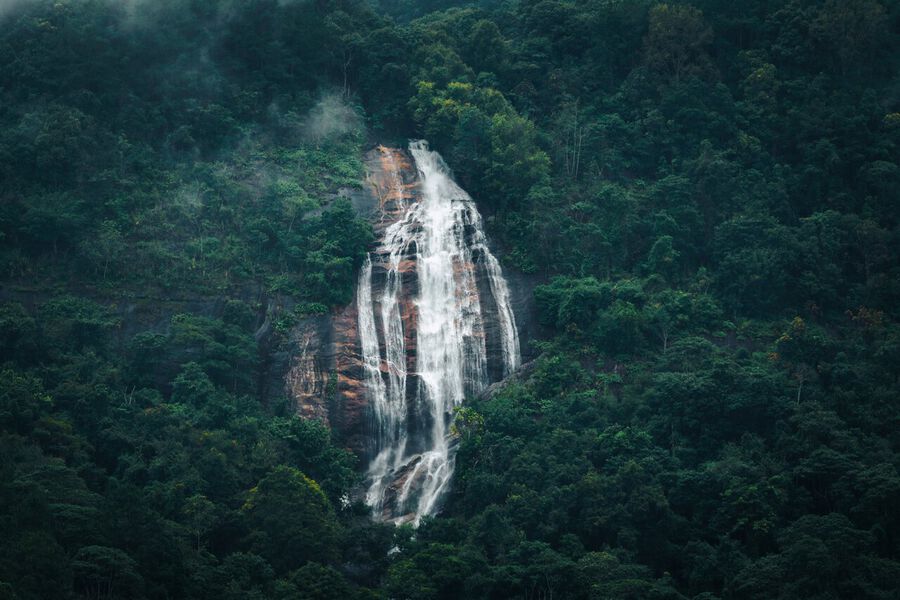
How to Get to Chiang Mai, Thailand?
Getting to Bangkok, Thailand
In order to get to Chiang Mai, first, you will have to get to Bangkok, the capital city of Thailand. Thankfully, Bangkok is a large hub in the region, so you should have no trouble finding a flight from your home country to Suvarnabhumi International Airport or Don Muang International Airport (budget airlines only) in Thailand.
From the US, unfortunately, there are no direct flights to Chiang Mai or Bangkok, so you will have to rely on transit flights by Emirates, Qatar, or Turkish Airlines from the East Coast, or ANA Airlines or Korean Air from the West Coast.
From Europe, you can fly from the most popular European hubs like London, Paris, or Frankfurt via Thai Airways or local carriers like British Airways, Air France, or Lufthansa to Bangkok. Then, you can fly domestically to Chiang Mai. If you don't mind transiting, you can also choose Etihad, Qatar, or Emirates.
From within Asia, there are several low-cost airlines offering multiple routes from many hub cities like Singapore, Kuala Lumpur, Tokyo, Jakarta to Chiang Mai, which transit through Bangkok. AirAsia and Thai Lion Air are great low-cost options, and they also provide direct routes from places like China to Chiang Mai.
To find a cheap flight to Bangkok, I would recommend that you use Skyscanner or Expedia to look for the cheapest route and schedule, so you can compare and pick the best one.
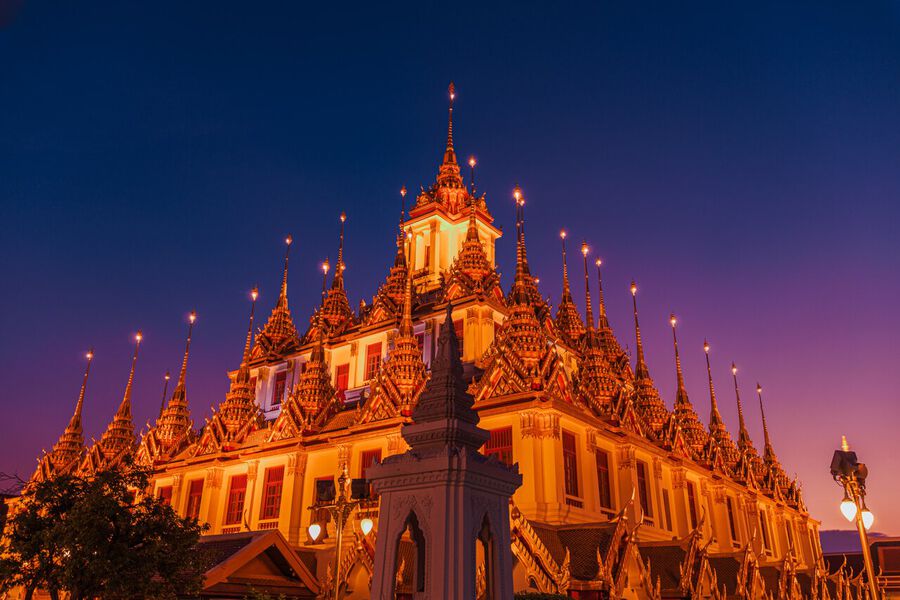
Getting from Bangkok to Chiang Mai, Thailand
By Air: The fastest way to get from Bangkok to Chiang Mai is to fly from Don Muang Airport to Chiang Mai International airport with one of the many low-cost airlines in Thailand. For AirAsia, there are over 13 flights per day and they can cost as low as 492 THB, which is even cheaper than taking a bus or a train. There are also Thai Lion Air and Nok Air that offer the route, so be sure to check them out too.
By Bus: If you are not in a rush, you can also take a bus from Morchit Bus Terminal in Bangkok, and it will take you about 10 hours to reach Chiang Mai Bus Terminal Arcade 2. The bus leaves from Morchit Bus Terminal every hour from 5:30 to 22:00, and it should cost about 400 - 800 THB per person.
If you are looking for a VUP bus from Bangkok to Chiang Mai, you can book through here: Book a VIP bus from Bangkok to Chiang Mai, Thailand.
By Train: You can also take a train from Hua Lamphong Train Station in Bangkok to Chiang Mai Train Station, which can take anywhere from 11 to 15 hours. It is a long ride, and you are not even saving that much as the price for a ticket is about 400 to 500 THB. There are 7 trains running between the two stations from 08:30 to 22:00 every day.
To book a train ticket from Bangkok to Chiang Mai, you can book through here: Book a train from Bangkok to Chiang Mai, Thailand.
How to Get from Chiang Mai Bus Terminal to Your Accommodation?
Chiang Mai is massive and extremely crowded, so the easiest way to get from Chiang Mai Bus Terminal Arcade 2 to your accommodation is to hail a taxi with the Grab application available on Android and iOS.
It should cost around 100-120 THB to get from the bus terminal to the city center, and depending on the traffic, it could take from 15 minutes to an hour to arrive.
Getting from Chiang Mai to Lamphun, Thailand
From Chiang Mai, you will first have to make your way to the Talad Warorot Song Taew stop west from the city center, right by the Ping River. From the city center, you can catch a yellow Song Taew from Chiang Mai Bus Terminal 1 (Chang Phueak Bus Terminal) to Talad Warorot for 10 THB and it should take about 10 minutes. Make sure you ask the driver whether they are going to Talad Warorot or not before getting on.
From Talad Warorot, you can then get on a blue Song Taew, which is often parked in front of the Song Taew stop along the road by the river. The blue Song Taew will take you to Lamphun in 1 hour for 20 THB.
Once you arrive in Lamphun, the Song Taew will drop you off in front of Hari Phun Chai National Museum, which is where you will have to be to get back to Chiang Mai. The blue Song Taew connecting Chiang Mai to Lamphun runs from 5 AM to 8 PM every 30 minutes, so be sure to be back in time for the last bus back.
Once you get back to Talad Warorot from Lamphun, you can then find a yellow Song Taew that goes to Mae Rim where you can then drop yourself back off at Chiang Mai Bus Terminal 1 (Chang Phueak Bus Terminal), just like before, or you can just call Grab Taxi and get back to your accommodation from Talad Warorot.
How to Get Around Lamphun?
By Walking: Lamphun is not big, and most of the attractions are within less than a 30-minute walking distance from each other. Therefore, you can quickly cover most of the attractions I listed here on foot in one day.
By Samlor: That said, Thailand's weather can also get quite hot, and walking under that heat is not fun even for me. So, if you are looking to visit temples like Wat Chammathewi that are a little further away, you can take a Samlor, a local cycle rickshaw that serves as a slow form of taxi.
Samlor is a great way to slowly get around Lamphun for around 20 - 40 THB. To get a Samlor, you can flag them down on the street and tell them where you want to go, negotiate the price, and pay money once you arrive. The price I paid to get from the Hariphunchai Museum to Wat Chammathewi was 40 THB.
By Moto-taxis: There is also a moto-taxi stand right at the corner by Hariphunchai Museum where you can ask them to drop you off wherever you want within the city. Be sure to negotiate the price before you get on one.
By Tourist Trams: I was tipped by a samlor that you can also get on one of the tourist trams that leaves from the Haripunchai Museum for 50 THB, and they will take you around the city to 9 of the well-known temples. However, you will need a few hours to complete the round. If you arrive in Lamphun early in the morning and do not mind leaving late, getting on a tourist tram is probably the most cost-effective way to get around Lamphun.
How Much Money Do I Need For Lamphun?
From this one-day itinerary in Lamphun, we can calculate approximately how much money you will be spending for a one-day itinerary in Chiang Mai as follows:
Accommodation: With a total of 2 nights in Chiang Mai, you will be paying around 20 USD (629 THB).
Food: Food costs about 40 THB minimum in Lamphun and 50 THB in Chiang Mai, so expect to pay around 140 THB for one day.
Transportation: For a trip to and from Lamphun, you will have to pay 40 THB, and a Song Taew ride in Chiang Mai for around 10 THB, so in total, you will pay 50 THB for transportation.
Activities: You will have to pay 100 THB for the Haripunchai museum and 20 THB for Wat Phra That Haripunchai, so you can expect to pay around 120 THB for activities.
Total Budget for 2 days in Chiang Mai: 939 THB (30 USD)
Is it Safe in Lamphun, Thailand?
Like most less-traveled places in Thailand, Lamphun is very safe, and you are unlikely to encounter any undesirable scammers that you often meet at other crowded places.
That said, always try to negotiate with moto-taxis or Samlor before getting on one, just in case they try to get more money out of you. In my experience, though, since Lamphun does not get as many tourists, most locals there are mostly trying to survive day-to-day, and not many are out to scam you like in Bangkok.
Just like in any foreign city, please be sure to exercise caution. Do not leave your things unattended and watch out for your belongings at all times.
Which tourist SIM card is best for Lamphun?
Update: If your phone supports eSIM, I highly recommend checking out Airalo, a global eSIM marketplace. It allows you to stay connected affordably while traveling in Lamphun, Thailand without having to switch out your physical SIM card.
Gone are the days when you needed to scramble to find a local SIM card at an airport upon arrival. You can purchase an eSIM before your arrival, and you'll be good to go. If your phone doesn't support eSIM, here is how you can get a local SIM card in Lamphun, Thailand:
There are 3 major carriers in Thailand: AIS, DTAC, and True, all of which offer a pretty similar range of traveler's packages as well as coverage. Personally, I use AIS as I have been with them since my first phone, and they have a lot of Support Centers around Thailand. Their coverage hasn't failed me yet, so if you are looking for a reliable carrier, I can recommend AIS.
There are three packages for tourists: 5 GB for 5 days at 160 THB, 15 GB for 8 days at 299 THB, and 30 GB for 15 days. Depending on the length of your trip to Thailand, you can choose one of these three packages that best suits your itinerary.
With these three packages, you can top up more in case you need additional data or calls for your trip. More often than not, 5GB is more than enough for me to travel around Thailand for a month.
For more information about Thailand's local SIM card: Thailand's Prepaid Data SIM Card.
Tips: To stay connected with people at home, be sure that you have a VPN, such as ProtonVPN, installed before traveling. It's FREE, and you can gain access to services that may be blocked in certain countries.
What to Pack for Lamphun, Thailand?
As you may already know, I am an advocate of light traveling, and indeed, packing light for a journey like this is a unique art form. Here are some packing tips for your upcoming trip to Lamphun, Thailand:
- Walking/Hiking Shoes: With all the walking and possible hiking during your travel, a comfortable pair of shoes is a must. I recommend the Timberland 3-Eye Classic Boat Shoes that are my go-to pair for long strolls and hikes.
- Breathable Shirts: Given the potential for hot weather, pack a few breathable shirts for your outdoor adventures.
- Shorts/Jeans: Anticipate lots of walking during your travels? Be sure to pack some breathable shorts and a pair of Levi's jeans for when the weather cools. For women, leggings are excellent for both hot and cold climates, so consider packing some as well.
- Outer Shell Jacket: An outer shell jacket is great for windy or rainy conditions. I highly recommend the Columbia Watertight Jacket (for women). It's lightweight, breathable, and even comes in a cool orange color.
- Microfiber Towel: A Microfiber towel is the ideal backpacker's towel due to its lightness, quick drying, and compressibility.
- Swim Suits: A swim trunk is a must-pack item if you are planning to visit Lamphun, Thailand in the summer, just in case there is a body of water you can jump in.
- Camera: You should also pack a good camera for your trip so that you can capture all the beautiful experiences you might have. I recommend the Sony a7R V camera together with the Sony 24-70mm f2.8 GM II lens, which is probably the highest-performance camera and lens combination you can get right now.
- Power Bank: Keep your electronics charged on the go with a 20,000+ mAh Power Bank.
- Water Bottle: The Hydro Flask Trail Water Bottle is a great insulated water bottle to have with you in cities or on hiking trails. It is lightweight and can keep your water cold or warm for more than 12 hours. It's a total game-changer.
- Universal Adapter: You'll need just one universal adapter to plug in your electronics in any country you visit.
- Packing Cubes: Packing Cubes will help you save space in your backpack and keep all your belongings organized.
- Daypack: The Langly Alpha Globetrotter is my go-to everyday camera backpack. It's large enough to carry all my travel gear, and it comes with plenty of slots and pouches. Plus, it's stylish as hell!
- Large Backpack: You will need a large backpack to carry all of your stuff. I recommend the Osprey Atmos AG 65L backpack. With excellent weight distribution and a lifetime guarantee, you can't go wrong with Osprey.
For more information on what I pack in my backpack for this trip, check out: My Packing List: 60 Travel Essentials.
Now that we have all the information we need, it's time to start planning your trip! Here are some resources to help you get going:
Are you planning to travel independently? Be sure to check out my guide on How To Plan A Backpacking Trip here.
Further Reading for Northern Thailand
Looking for more information for your trip to Northern Thailand? Here are collections of articles about Thailand that you might find useful:
- Looking for a complete travel guide to Southeast Asia? You should check out our 3 Months Backpacking Itinerary for Southeast Asia.
- Looking for an itinerary for Thailand? Check out 10 Days Itinerary for Thailand.
- Not convinced by my words? How about looking through these photos I took in Thailand? 25 Beautiful Photos from Thailand.
- If you are traveling to Thailand, it is important for you to know what you should and shouldn't do. Here are 10 Tips for Traveling in Thailand.
- Thai Street Foods is among the best in the world, and to help guide you through the street food cuisine of Thailand, be sure to check out the 15 Best Street Foods in Thailand to Try.
- Learning a bit of Thai phrases will go a long way for you when you visit Thailand. Here are 15 Thai Phrases You Should Know.
- More often than not, your journey in Thailand will begin in Bangkok, and there are a ton of things you shouldn't miss in this city. Here are the 16 Best Things to Do in Bangkok.
- Want to spend a day outside Bangkok but not sure where? Here are the 9 Best Day Trips To Make From Bangkok.
- Don't have a lot of time in Bangkok? Check out our One Day in Bangkok Itinerary.
- Have more than one day in Bangkok? I highly recommend that you spend at least 3 days in Bangkok. Here is a complete 3 Days Itinerary for Bangkok.
- For the best areas and neighborhoods to stay in Bangkok, check out: 7 Best Areas to Stay in Bangkok.
- First time in Northern Thailand? Check out the 10 Best Places to Visit in Northern Thailand.
- Want to get off the beaten track and really explore Northern Thailand? Check out: 2 Weeks Northern Thailand Itinerary.
- Looking for another great road trip to get you off the beaten path in Northern Thailand? Check out: 9 Days Nan Loop Road Trip Itinerary.
- Not sure where to begin your journey in Northern Thailand? How about an old capital with a Complete Backpacking Guide to Phitsanulok?
- Come explore the lesser-known mountainous region of Phetchabun with this travel guide: Discover Phetchabun: 10 Incredible Things to Do and More.
- Tired of the constant heat in Thailand? Escape to the cool mountains of Khao Kho with this guide: A Complete Travel Guide to Khao Kho.
- As a gateway to the mountains of Phetchabun, Lom Sak is the perfect place to stop by before you head into the mountains. For a complete travel guide, check out: A Complete Travel Guide to Lom Sak.
- Did you know that the cradle of Thailand began in the ancient city of Sukhothai, north of Bangkok, in the 13th Century? If you are interested in the history of Thailand, here is The Ultimate Backpacking Guide to Sukhothai.
- Sukhothai has a twin city that has prospered together since the first founding of the Siam Kingdom. The ancient city is called Si Satchanalai, 60 km north of Sukhothai, and there are many less-traveled ancient ruins there waiting for you to explore. Here is A Complete Backpacking Guide to Si Satchanalai.
- Kamphaeng Phet, which translates to "The Wall of Diamond," was an outpost town that played a role in protecting the Siam Kingdom from invasion for several decades, and you can still see the remnants today. Here is A Complete Backpacking Guide to Kamphaeng Phet.
- Lampang is low-key, one of the most laid-back places in the north with a northern vibe similar to Chiang Mai but much quieter and more authentic. If you are looking to go off the beaten path in Thailand, check out The Ultimate Backpacking Guide to Lampang.
- Spending a few days relaxing in Lampang? Here are 9 Best Cafes and Restaurants to Try in Lampang.
- There is no need for an introduction to the renowned old capital city of the Lanna Kingdom, Chiang Mai. Here is a list of the 20 best things to do in Chiang Mai according to the locals.
- Chiang Mai is a big city. How does one find the best restaurants and cafes, you asked? Check out 25 Absolute Best Restaurants and Cafes in Chiang Mai.
- Doi Inthanon is the highest mountain in Thailand, and in order to travel there, you will need a complete travel guide. Here is The Ultimate Backpacking Guide to Doi Inthanon.
- Have only 3 days in Chiang Mai? Check out 3 Days Backpacking Itinerary for Chiang Mai.
- Looking to go off the beaten path in Chiang Mai? How about visiting the untouched nature of Doi Ang Khang and the Chinese-influenced towns of Arunothai and Chai Prakan? Here are the 10 Best Things to Do in Doi Ang Khang.
- One of the best road trips you can make in Thailand is traversing the Mae Hong Son Loop. Here's a complete backpacking guide and a 10-day itinerary for Mae Hong Son Loop.
- Looking to start the Mae Hong Son Loop but not sure where to start? How about the city of Mae Sariang? Here are 8 Best Things to Do in Mae Sariang.
- Mae Hong Son City is one of my favorite cities from the entire Mae Hong Son Loop road trip. Here are 15 Best Things to Do in Mae Hong Son City.
- Pai has become a tourist hotspot ever since it was discovered and featured in many travel blogs, but what is there to do in Pai? We have the answer. Here are the 15 Best Things to Do in Pai, Thailand.
- Chiang Rai is home to not just stunning temples like the White and Blue Temples, but also the beautiful mountains of Pho Chi Fan and Doi Pha Tang. Here are the 16 Best Things to Do in Chiang Rai.
- One of the most iconic peaks in Thailand is Phu Chi Fa, and you can hike to the top of it among other hiking trails around Chiang Rai's highlands. Here is A Complete Hiking Guide to Phu Chi Fa.
- Chiang Saen is an ancient walled city full of history and beautiful scenery waiting for you to explore. Here are the 10 Best Things to Do in Chiang Saen.
- Phrae is so much more than a stopover destination. Here are the 14 Best Things to Do in Phrae.
- Nan is the upcoming trendy tourist attraction in Thailand that is still pretty much unexplored by foreigners. If you want to travel to Nan, here are the 16 Best Things to Do in Nan.
- Phayao is a beautiful hidden gem of Thailand's north that is waiting for you to explore. It rarely gets any tourists, all the more reason to visit Phayao before it is discovered! Here are the 12 Best Things to Do in Phayao.
- Want to explore other parts of Thailand? How about exploring Central Thailand or Southern Thailand?
- Wondering where to go after Thailand? How about continuing on to Malaysia, Myanmar, or Indonesia?
- For all articles about Thailand, visit the Thailand Travel Guide page.
- Looking to travel to Southeast Asia? Check out all my articles about Southeast Asia here: Southeast Asia Travel Guide page.
- You can see all my Asia-related articles here: Asia Travel Guide page.
- For more of my travel guides like this, visit my Destinations page.
Disclosure: This post may contain affiliate links.






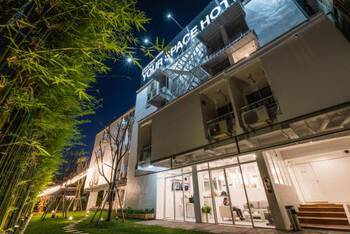

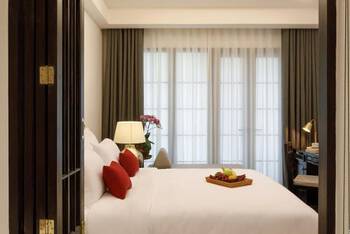



































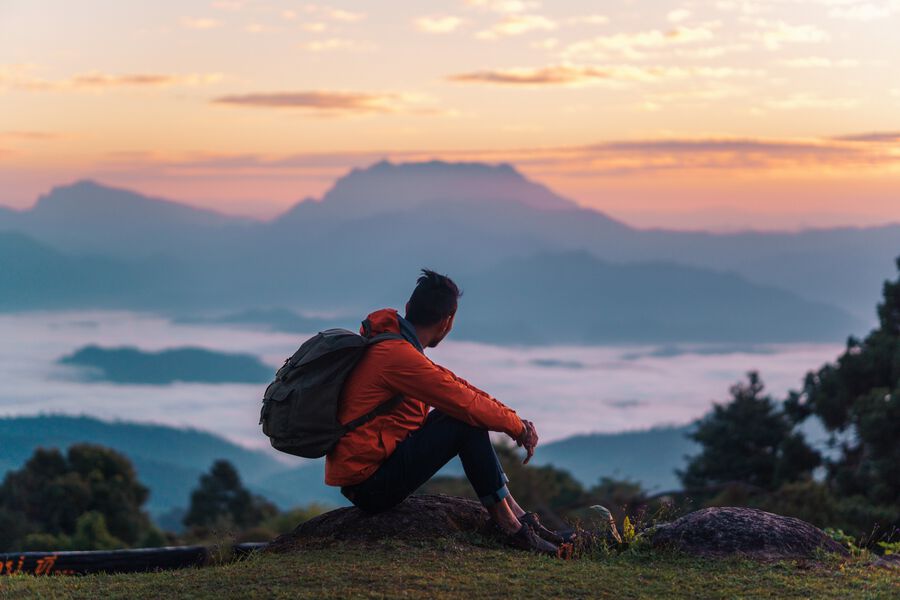






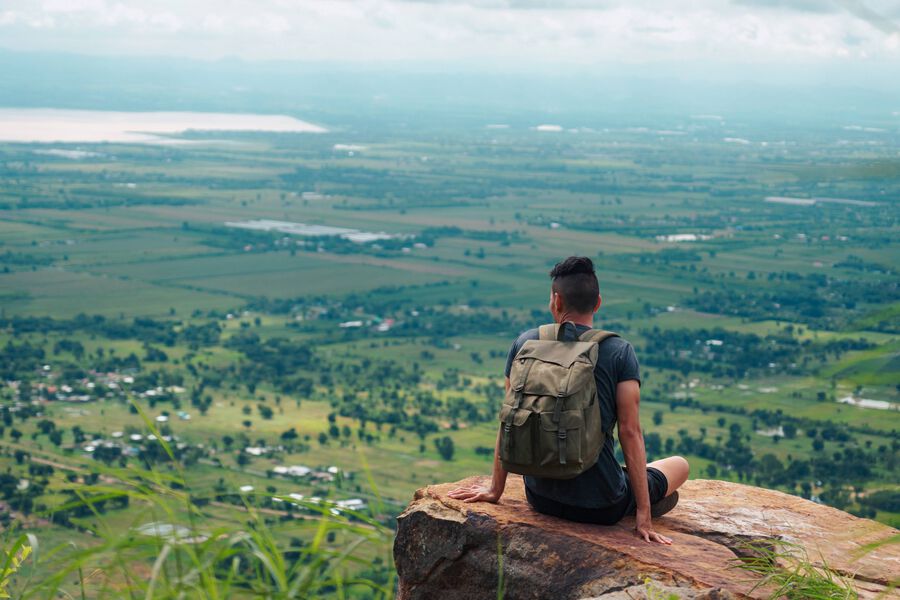
2 Comments
Do you know if the Mickey Mouse Museum is still open? We went there in May and it was closed and looked derelict? (But I see this was updated in September.) We'd love to visit again if it's definitely open!
Umm.. since it's a private company running the place and they don't get as many tourists, the opening hours are rather sporadic. It was open 8 months ago but I haven't seen any other reports since then, so I assume it is still closed. I'll add that info to the blog. Thanks for the heads up!